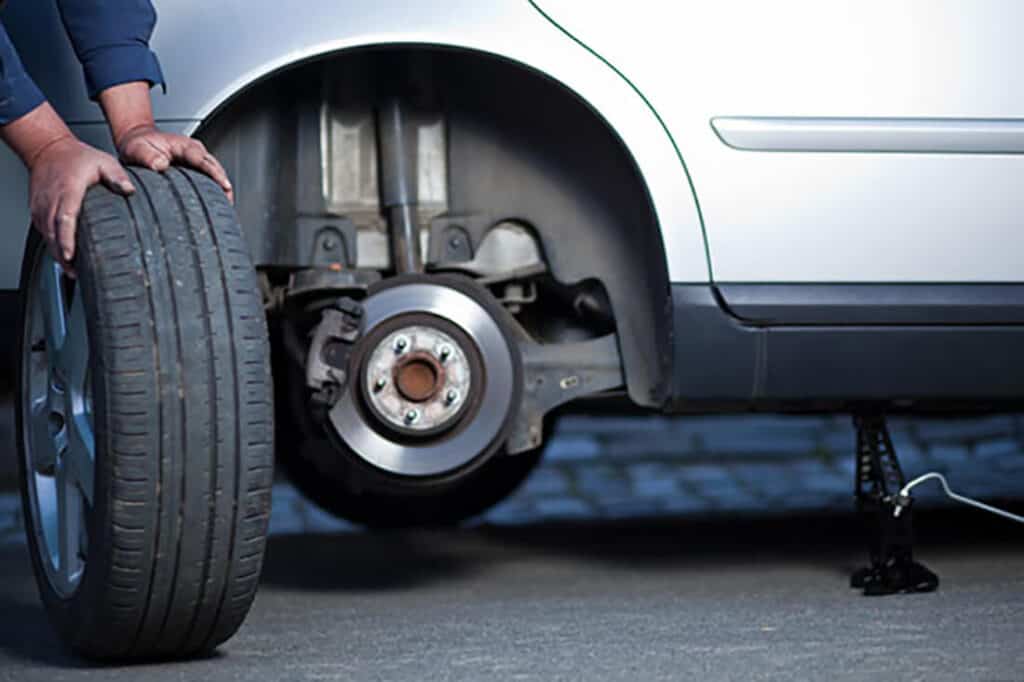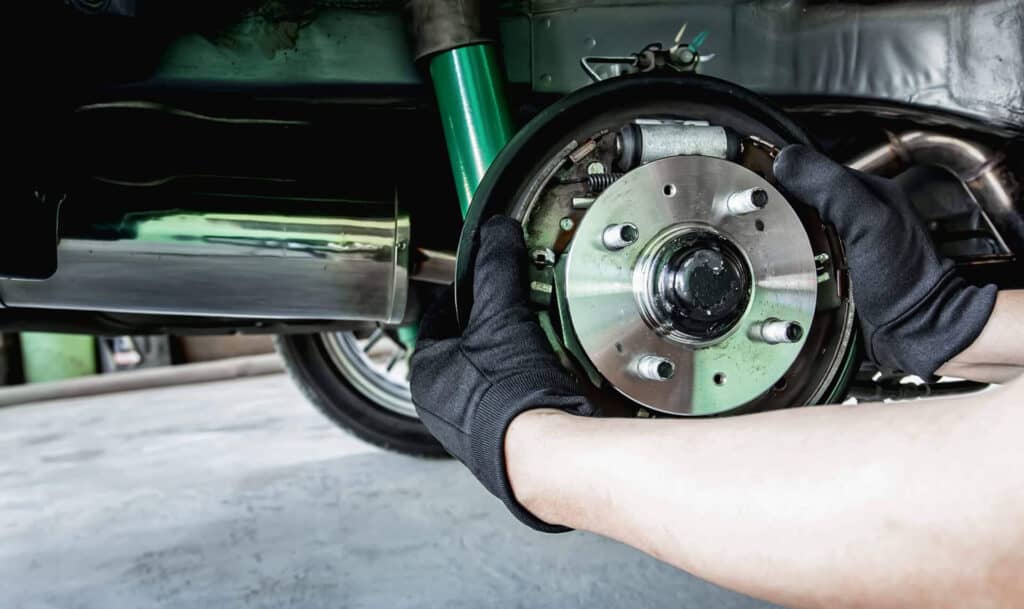Wheel bearings are critical components that contribute significantly to your vehicle’s overall performance. They enable your wheels to spin freely with minimal friction while bearing the load of the vehicle. Over time, wheel bearings can wear out, adversely impacting your car’s ride quality, and, more importantly, your safety. While many car owners know the importance of maintaining healthy wheel bearings, questions like ‘can a mobile mechanic replace a wheel bearing?’ often crop up when replacements become inevitable. This article is aimed at addressing these questions and providing you with an in-depth understanding of wheel bearing replacement.
Mobile Mechanics and Wheel Bearings: Can a Mobile Mechanic Fix Wheel Bearings?
In the world of auto repair, mobile mechanics have emerged as a convenient solution. Whether you are stuck at home or stranded by the side of the road, a mobile mechanic can bring the garage to you. But when it comes to more intricate tasks such as wheel bearing replacement, can they handle the job? The answer is typically yes. Mobile mechanics are often fully trained professionals equipped with the tools necessary to replace wheel bearings. However, the complexity of the task can depend on the vehicle make, model, and the specific type of wheel bearing it uses. Some modern vehicles use an integrated hub assembly where the bearing, hub, and sometimes even the anti-lock braking system (ABS) sensors are incorporated into one unit. Replacing such a hub assembly can be more complex and time-consuming, but a skilled mobile mechanic should be able to handle the task.

The Cost of Replacement: How Much Does It Cost to Get Wheel Bearings Replaced? Cost is a crucial factor to consider when you are planning for a wheel bearing replacement. The cost can vary widely depending on a few factors – the type of your vehicle, the part of the country you live in, and whether you are replacing a front or rear wheel bearing. On average, for most vehicles, you can expect the cost of the bearing part to fall within the range of $150 – $300 per wheel. The labor cost can add another $100 – $200 per wheel to your bill. It’s worth noting that the labor cost can be higher if you are replacing a hub assembly, given its complexity. To get a precise quote, you should contact your mobile mechanic or local garage.
DIY vs Professional Help: Can I Replace a Wheel Bearing Myself?
Taking on the task of replacing wheel bearings at home is a possibility if you have the right skillset, experience, and tools at your disposal. The task requires a specific understanding of automotive mechanics due to the complexity of the job. Wheel bearings are typically press-fitted into the wheel hub, and their removal and installation necessitate the use of a press. Any missteps during this process could result in damage to the new bearing or the hub, leading to an even more complicated and costly situation.
However, not everyone is equipped with the necessary know-how or tools to perform this task. For those less mechanically inclined, professional help is highly recommended. One option that marries convenience and expertise is the use of mobile mechanics. These professionals are equipped to handle complex jobs like wheel bearing replacement and can do so right at your home. This way, you get the assurance of professional service without the hassle of going to a traditional repair shop, offering a convenient solution to a potentially complex problem.
The Risks of Neglect: What Happens If You Keep Driving with a Broken Wheel Bearing?
Ignoring a broken or damaged wheel bearing is a recipe for disaster. The initial risks include difficulties in steering your vehicle. This alone can lead to accidents, especially at high speeds or during sharp turns.
As the condition of the bearing worsens, more severe problems may arise. Your wheel may begin to wobble, reducing your control over the vehicle and increasing the likelihood of an accident. In extreme cases, the wheel can completely detach from the vehicle while in motion, a scenario that can have catastrophic outcomes.
The damage doesn’t stop at the wheel bearing itself. A failing bearing can affect other components of your wheel assembly. This can result in the need for more extensive repairs, significantly increasing the cost beyond just replacing the wheel bearing.
In essence, continuing to drive with a faulty wheel bearing is a risk too high to take. The potential for accidents, damage to other vehicle components, and ultimately, higher repair costs, significantly outweigh the inconvenience and expense of replacing the wheel bearing in the first place.

The Urgency of Replacement: How Quickly Do I Need to Replace a Wheel Bearing?
As soon as you notice symptoms of a failing wheel bearing, it’s important to have it inspected and replaced if necessary. While it might be possible to drive a short distance with a bad wheel bearing, it is not recommended. The deterioration of a wheel bearing can be rapid, and waiting to replace it can only increase the risks mentioned above. Therefore, prompt attention and action are essential for ensuring your safety and the integrity of your vehicle.
Conclusion
Wheel bearings may be small, but their role in your vehicle’s operation is vital. Ensuring their good condition is key to a smooth, safe drive. While the idea of mobile mechanics replacing wheel bearings or attempting a DIY might seem daunting, it can be a practical, cost-effective solution when handled correctly. Remember, the key to successful wheel bearing maintenance is not just about handling failure but also about taking proactive measures to prevent such failure in the first place. Regular vehicle check-ups, timely replacements, and professional help when needed can ensure your wheel bearings, and in turn, your wheels, keep rolling smoothly.
